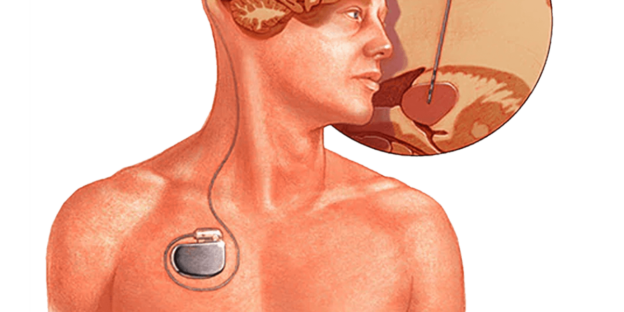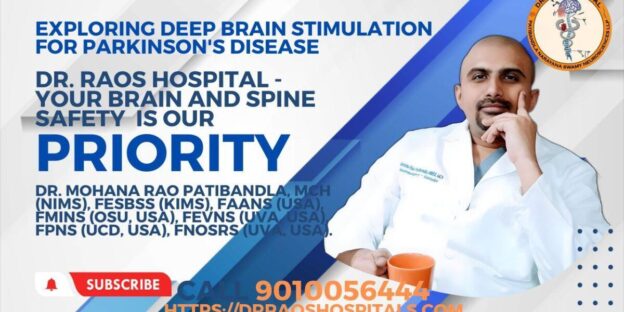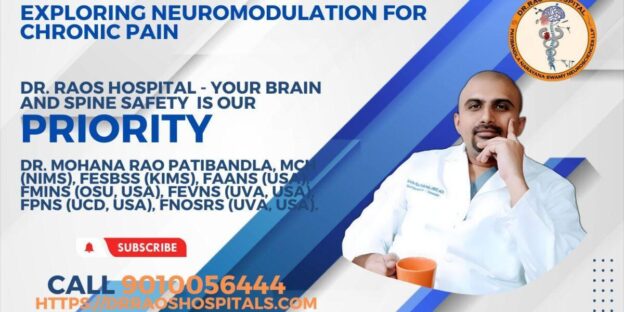Neurosurgery for Movement Disorders: Parkinson’s Disease, Essential Tremor, and Dystonia
Neurological movement disorders, such as Parkinson’s disease, essential tremor, and dystonia, can significantly impact a person’s quality of life. While medication and therapy are often the first line of treatment, neurosurgery can offer practical solutions for individuals with severe and disabling symptoms. In this blog, we will explore the role of neurosurgery in managing movement disorders, focusing on Parkinson’s disease, essential tremor, and dystonia. We will also highlight the expertise of Dr. Rao, the best neurosurgeon in India, and the exceptional care provided at Dr. Rao’s Hospital, known as the premier neurosurgery center in the country.
Understanding Movement Disorders :
We will provide an overview of movement disorders, explaining their characteristics, causes, and impact on daily life. Specifically, we will delve into the three most common movement disorders: Parkinson’s disease, essential tremor, and dystonia. By understanding the underlying neurological mechanisms, we can understand the rationale of neurosurgical interventions.
Parkinson’s Disease and Neurosurgery :
Parkinson’s disease is a progressive neurological disorder characterized by tremors, stiffness, and bradykinesia. We will explore the different surgical options available for Parkinson’s disease, including deep brain stimulation (DBS) and ablative procedures. Additionally, we will discuss the selection criteria, benefits, and potential risks associated with neurosurgical interventions in Parkinson’s disease.
Essential Tremor and Neurosurgery :
Essential tremor is a common movement disorder characterized by involuntary shaking of the limbs. We will examine how essential tremor affects daily functioning and its impact on a person’s quality of life. We will then delve into the various surgical treatments available, such as DBS and focused ultrasound, highlighting their efficacy in reducing tremors and improving overall function.
Dystonia and Neurosurgery:
Dystonia is a movement disorder characterized by repetitive, involuntary muscle contractions that result in abnormal postures or twisting movements. We will discuss the different types of dystonia and their impact on mobility and daily activities. Neurosurgical options, including DBS and selective denervation surgeries, will be explored as potential treatment approaches for dystonia.
Dr. Rao: Leading the Way in Neurosurgical Management
Dr. Rao, the best neurosurgeon in India, has extensive experience in the field of neurosurgery for movement disorders. His expertise and advanced surgical techniques make him a trusted specialist in treating Parkinson’s disease, essential tremors, and dystonia. Dr. Rao’s Hospital, recognized as the best neurosurgery center in India, offers state-of-the-art facilities and a multidisciplinary team dedicated to providing comprehensive care for patients with movement disorders.
The Benefits of Neurosurgical Interventions
We will discuss the benefits of neurosurgery for movement disorders, such as improved motor function, reduced medication dependency, and enhanced quality of life. We will also address potential risks and the importance of careful patient selection and comprehensive preoperative evaluations.
Patient Stories: Real-Life Experiences
Sharing the inspiring stories of patients undergoing neurosurgery for movement disorders can provide hope and insight into the potential outcomes. We will highlight specific cases where individuals have experienced significant improvement in their symptoms and regained control over their lives after neurosurgical interventions.
Rehabilitation and Postoperative Care
Neurosurgery for movement disorders is just one step in the treatment journey. We will emphasize the importance of postoperative rehabilitation, including physical, occupational, and speech therapy. We will discuss the role of rehabilitation in optimizing the outcomes of neurosurgical interventions, promoting recovery, and helping individuals regain functional independence.
Multidisciplinary Approach
The successful management of movement disorders requires a collaborative and multidisciplinary approach. We will highlight the importance of a team of neurosurgeons, neurologists, rehabilitation specialists, and other healthcare professionals working together to provide comprehensive care. Dr. Rao’s Hospital, known for its multidisciplinary approach, ensures that patients receive personalized treatment plans tailored to their specific needs.
Advances in Neurosurgery for Movement Disorders
We will explore the latest advancements in neurosurgical techniques and technologies for movement disorders. This may include emerging treatment options, innovative surgical approaches, and ongoing research efforts to improve outcomes further and expand the scope of neurosurgical interventions.
Conclusion
Neurosurgery plays a crucial role in the management of movement disorders such as Parkinson’s disease, essential tremor, and dystonia. Dr. Rao, the best neurosurgeon in India, and his team at Dr. Rao’s Hospital are at the forefront of delivering exceptional care and utilizing advanced techniques in the field of neurosurgery for movement disorders. Their expertise, multidisciplinary approach, and commitment to patient well-being provide hope and improved quality of life for individuals living with these challenging conditions. As reported by ahmedabadmirror
Dr. Rao’s Contact Information:
- Phone: 9010056444, 9010057444
- Email: info@drraoshospitals.com
- Address: Old Bank St, GV Thota, beside AK Biryani Point, Guntur, Andhra Pradesh 522001
- Website: Dr. Rao’s Hospital
Hashtags: #MovementDisorders #ParkinsonsDisease #EssentialTremor #Dystonia #Neurosurgery #DrRao #DrRaosHospital #BestNeurosurgeon # #NeurosurgicalInterventions #MultidisciplinaryApproach #AdvancedTechniques #ImprovedQualityofLife



